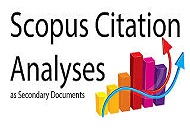The Implementation of ‘Market Day' Activities to Improve Children Entrepreneurship at Telkom Preschool Ternate
DOI:
https://doi.org/10.33394/jk.v7i3.3597Keywords:
Market Day, Entrepreneurship, Early Childhood Education.Abstract
This study aims to describe the implementation of 'market day' activities to improve children entrepreneurship learning at Telkom Preschool Ternate. The research method used is descriptive qualitative. The subjects of this research were students and teachers of group B Telkom Preschool in academic year 2019/2020. Data collection used direct observation, in-depth interviews and documentary methods. The data were analyzed qualitatively with such stages of reduction, presentation of data, verification and conclusion. The result showed that the implementation of the 'market day' or school market activities in Telkom preschool Ternate has integrated with entrepreneurial values based on Telkom preschool curriculum. The students were able to get direct experience about entrepreneurship value. All students in A1, A2, A3, B1, B2, B3 groups felt enthusiastic and motivated when buying and selling activities. The learning activities from the beginning to the end were done in accordance with the principles of learning for early childhood and directed towards the achievement of learning objectives. Thus, it will improve children's cognitive abilities and entrepreneurial skills from an early age.
References
Anjarwani, R. (2016). Membangun Jiwa Kewirausahaan Pada Anak Usia Dini dengan Permainan Tradisional Pasaran. Seminar Nasional Pgsd 2016, 5–10.
Axelsson, K., Hägglund, S., & Sandberg, A. (2015). Entrepreneurial Learning in Education Preschool as a Take-Off for the Entrepreneurial Self. Journal of Education and Training, 2(2), 40. https://doi.org/10.5296/jet.v2i2.7350
Derksen, V. L. (2003). Hypermedia construction in an elementary school: A case study. ProQuest Dissertations and Theses, 172. http://search.proquest.com/docview/305349685?accountid=7098%5Cnhttp://ttu-primo.hosted.exlibrisgroup.com/openurl/01TTU/01TTU_SERVICES?genre=dissertations+%26+theses&atitle=&author=Derksen%2C+Vickie+Lorraine&volume=&issue=&spage=&date=2003&rft.btitle=&rft.
Diana, D., Windiarti, R., & Astuti, H. P. (2017). Developing Enterpreneurship Activity Based on Local Culture in Early Childhood. 118, 502–507. https://doi.org/10.2991/icset-17.2017.83
do Paço, A., & Palinhas, M. J. (2011). Teaching entrepreneurship to children: A case study. Journal of Vocational Education and Training, 63(4), 593–608. https://doi.org/10.1080/13636820.2011.609317
El Khuluqo, I. (2017). Early Childhood Entrepreneurship Education: a Brief Description of an Ideal Entrepreneurship Learning for Middle Childhood. IMC 2016 Proceedings, 1(1), 818–827.
Handayati, P., Wulandari, D., Soetjipto, B. E., Wibowo, A., & Narmaditya, B. S. (2020). Does entrepreneurship education promote vocational students’ entrepreneurial mindset? Heliyon, 6(11), e05426. https://doi.org/10.1016/j.heliyon.2020.e05426
Hassi, A. (2016). Effectiveness of early entrepreneurship education at the primary school level: Evidence from a field research in Morocco. Citizenship, Social and Economics Education, 15(2), 83–103. https://doi.org/10.1177/2047173416650448
Huberman, A., & Miles, M. (2012). Understanding and Validity in Qualitative Research. In The Qualitative Researcher’s Companion. https://doi.org/10.4135/9781412986274.n2
Nagib, L., & Ngadi. (2008). Challenges of Unemployment in Indonesia: Trends, Issues and Policies. Jurnal Kependudukan Indonesia, 3(2), 1–28. http://ejurnal.kependudukan.lipi.go.id/index.php/jki/article/view/167
Nurhayati, E. C. (2018). Pengaruh Market Day (Bazar) Terhadap Membangun Jiwa Wirausaha Mahasiswa Unsiq Jawa Tengah Di Wonosobo. Paramurobi: Jurnal Pendidikan Agama Islam, 1(2), 1–16. https://doi.org/10.32699/paramurobi.v1i2.522
Prasetyaningsih, A. (2016). Membentuk Jiwa Kewirausahaan pada Anak Usia Dini melalui Kegiatan “Market Day.†SELING: Jurnal Program Studi …, 2, 88–102.
Raposo, M., & do Paço, A. (2011). Entrepreneurship education: relationship between education and entrepreneurial activity. Psicothema, 23(3), 453–457. http://www.ncbi.nlm.nih.gov/pubmed/21774900
Rina, L., Murtini, W., & Indriayu, M. (2019). Entrepreneurship Education: Is It Important for Middle School Students? Dinamika Pendidikan, 14(1), 47–59. https://doi.org/10.15294/dp.v14i1.15126
Sjamsir, H., Jafar, F. S., & Alfiah, A. (2019). The Cultivation of Entrepreneurship Values in Children Aged 5-6 Years at TK Khalifah Samarinda. 224(Esic 2018), 12–15. https://doi.org/10.2991/esic-18.2019.4
Suharyoto, L. S. (2017). Menanamkan Nilai Kewirausahaan Melalui Kegiatan Market Day. Golden Age: Jurnal Pendidikan Anak Usia Dini, 1(1), 15–17. https://doi.org/10.29313/ga.v1i1.2861
Suzanti, L., & Maesaroh, S. (2018). Entrepreneurship Learning for Early Childhood. January 2017, 403–410. https://doi.org/10.5220/0006887004030410
Wahid, S. (2017). Theory and Practice of Entrepreneurship Education in Higher Education: Case Study PLS FIP UNP. Seminar Nasional Pendidikan Nonformal FKIP Universitas Bengkulu, 1(July 2017), 184–198.
Downloads
Published
How to Cite
Issue
Section
Citation Check
License
License and Publishing AgreementIn submitting the manuscript to the journal, the authors certify that:
- They are authorized by their co-authors to enter into these arrangements.
- The work described has not been formally published before, except in the form of an abstract or as part of a published lecture, review, thesis, or overlay journal.
- That it is not under consideration for publication elsewhere,
- That its publication has been approved by all the author(s) and by the responsible authorities – tacitly or explicitly – of the institutes where the work has been carried out.
- They secure the right to reproduce any material that has already been published or copyrighted elsewhere.
- They agree to the following license and publishing agreement.
Authors who publish with JK agree to the following terms:
- Authors retain copyright and grant the journal right of first publication with the work simultaneously licensed under a Creative Commons Attribution License (CC BY-SA 4.0) that allows others to share the work with an acknowledgment of the work's authorship and initial publication in this journal.Â
- Authors are able to enter into separate, additional contractual arrangements for the non-exclusive distribution of the journal's published version of the work (e.g., post it to an institutional repository or publish it in a book), with an acknowledgment of its initial publication in this journal.
- Authors are permitted and encouraged to post their work online (e.g., in institutional repositories or on their website) prior to and during the submission process, as it can lead to productive exchanges, as well as earlier and greater citation of published work.
- Open Data Commons Attribution License, http://www.opendatacommons.org/licenses/by/1.0/ (default)

This work is licensed under a Creative Commons Attribution-ShareAlike 4.0 International License.








